#or when frodo and sam were almost dying on mount doom
Text
LOTR (films) Review
So I finally watched the LOTR films (20 years later). I’m super excited to review these because I read the books very recently so I feel at least a little prepared to voice some opinions. Overall I loved the films, here’s a very long (but by no means exhaustive) compilation of my thoughts, which are of course, totally subjective:
(Warning: a lot of me saying “well, actually, in the book...”)
THINGS I LIKED
- Casting! not much to say here, I thought the casting was great. One of my favorite actors that I didn’t think i’d have a huge opinion on was David Wenham as Faramir. I was kinda ambivalent on him when I saw pictures but i thought he did a great job. he showed his quality.
- Music. so much has been said about the films on the music front. I can’t offer too much original insight but when a bit of the Shire theme started to play as Frodo tries to make his way up Mount Doom I cried a little.
- Boromir and Aragorn. I liked the scene where they interact a little in Rivendell. I also like how Aragorn saves Boromir in the Moria battle and gives him this little nod of friendship. I think the films did a great job portraying the dynamic they have where Aragorn is clearly suspicious of Boromir’s motivations but grows to respect him to the point where he doesn’t even blame Boromir for being corrupted by the ring because he understands that, at heart, Boromir is a good person.
- Sam and Frodo in Osgiliath. I expected to be kind of annoyed with the way this plot point played out (I knew ahead of time that it strayed from the book), but I actually liked it a lot. As I’ll say later, there’s some gripes I have with the way the films extremely play up the disagreements between Frodo and Sam, but I loved the scene where Frodo pulls the sword on Sam and then seems so defeated when he realizes what he’s done. I was pleasantly surprised by how emotional this scene made me. It’s admittedly A Lot, but it was done nicely, especially in conjunction with Sam’s “there’s good in this world” speech.
- Treatment of the ending. I almost think I should dislike the ending as it is in the movies, but my heart is soft and I like that they sugarcoated it a bit. I know the whole point of the Scouring of the Shire and Frodo’s depression conveys a lot about war and trauma and I think that is important, but after watching these things for twelve hours I just wanted Frodo & co. to be happy and I was kinda relieved that they cut the Scouring. Does that make me weak and perhaps bad at film analysis? yes. do I care? no. I was also very glad that the movies didn’t portray how depressed Sam was about losing Frodo in the end. Yes, he cries, but when he walks home to his family he seems happy and in the books that scene came off so much bleaker. I definitely liked the lighter tone.
THINGS I WAS NEUTRAL ON/DIDN’T LIKE
- Arwen. (Neutral) I don’t hate her, I don’t love her. I think the story she and Aragorn have is compelling and I 100% get why the filmmakers decided to add it to give her character more depth, but it felt misplaced at times. maybe it’s just because it was the only storyline I didn’t know in depth, but the scenes with the Arwen/Aragorn flashbacks felt a bit confusing and disorienting. Don’t have anything against Arwen as a character though, I think she’s pretty alright.
- Gimli. (Complicated thoughts) I want to start off by saying I don’t dislike Gimli. I like him a lot! I just think the movies did him a bit dirty. He had some good movie-exclusive moments, but I think his character really fell into this place of being the butt of too many jokes. Would have liked to see some more serious Gimli development, especially with his relationship to Legolas. Their friendship felt too much like subtext here, whereas it’s explored far more in the books.
- Two Towers Pacing. (Didn’t really like). The pacing of TTT was...weird. maybe I’m going into this with a closed mind because of the books, but it was odd to have the movie begin with Frodo and Sam and then have them only appear for a few rapid scenes after that. I think the fact that a WHOLE LOT of what happens to Frodo and Sam in TTT is moved to RotK is what makes it feel that way? In the books, Two Towers ends with Sam discovering that Frodo isn’t dead from Shelob’s sting, and I was surprised by how long it took the movies to get to that part. However, I will give the films a little leeway because I think they needed Frodo & Sam content for RotK, since most of what happens in that book is them walking through Mordor basically starving and dying. Doesn’t make for great cinema I guess, so they had to put the whole Shelob/Cirith Ungol saga into the final film. Still, I think there’s a weird lack of Frodo and Sam’s presence in TTT.
- The go home/missing bread arc. (Full of rage abt this one) yeah. so. my criticism of this is gonna sound pretty tired because people complain and complain about this part of RotK. but I’m gonna complain some more!! I don’t think the split between Frodo and Sam does anything for the plot. I really don’t. I guess it emphasizes the fact that Sam doesn’t understand how much Frodo is projecting onto Gollum, but it’s just. unnecessary angst? They had enough angst in the Osgiliath scene! Which I actually liked! And it simply doesn’t make a lot of sense for Frodo to suspect Sam of eating the bread when Sam had already offered Frodo his own food and made it clear that he would very much starve if it meant making sure Frodo could eat. But what I hate most about this scene is not that Frodo gets mad and tells Sam to go home. No. It’s that Sam actually... thinks about doing that? he actually? goes down the staircase? emotionally this is bad because Sam clearly cared enough about Frodo to follow him this far, to nearly drown for him, so why would he leave now. Practically this is bad because 1. how would Sam get out of Mordor alone and 2. where would he go. He turns around almost immediately, yes, but what was his plan. where was he going. why.
THINGS I LOVED
- For Frodo! This line, and every other shoutout to Frodo. In the books, they didn’t really actively talk about/worry about Frodo (and Sam) as much as they do in the movies. I like that they talk about Frodo more in the movies! I like that they’re thinking about him! I know it was implied that they were in the books, but I really like how it’s shown here. I think it gave a more complete picture of how much they all care about him on a personal level in addition to just needing him to succeed from a pragmatic standpoint.
- Merry and Pippin! I feel like Merry and Pippin were so well rounded in the films. I’ve heard criticism about them being turned into comic relief characters (which they always were a little bit) but it honestly didn’t feel that way to me. They had a bit of a rough start because the films didn’t make their motives for going with Frodo as deep as the books did, but I think that by TTT they were absolutely amazing characters in every scene. In RotK their respective arcs hit really well and the scene where Pippin is singing to Denethor? *chef’s kiss* poetic. beautiful. sad. idk man I just feel like I have such a newfound appreciation for Merry and Pippin.
- Parallels! people have pointed out the parallel of Frodo and Sam’s hands before (drowning scene/mount doom scene) and I love how the movie did that. Just stunning. Also! The moving of the Smeagol & Deagol scene to RotK surprised me because in the books it was like,,,at the beginning of Fellowship, but I think the placement of it in the movies really helped emphasize the similarities between Smeagol & Deagol and Frodo & Sam (and how much Frodo fears this similarity.) There were a lot of other well done parallels between storylines and a few bits of dialogue that were repeated with great timing, but I can’t remember all of them at the moment.
Edit: here’s one I remembered! when Frodo wakes up after being rescued and sees Gandalf, he says Gandalf’s name in a very similar tone to the one he used at the very beginning of Fellowship. It was a nice little subtle connection.
- I can’t carry it for you...alright this is self-indulgent. everyone knows I love this line. I’m just so glad it made it into the movie intact. Sean Astin’s delivery was amazing. I cheered. My mom cheered. It’s a raw line and it makes me feel secret emotions...like if shrimp colors were feelings. that line makes me feel shrimp feelings. idk i’m so tired i just watched twelve hours of movies this review is decreasing in quality by the minute but i’m about done for now anyway
Various silly afterthoughts
- I would have liked to see Sam kiss Frodo’s hands at least once. This happens 50 thousand times in the books, they could have given me one scene. one little extended edition scene. Please Peter Jackson I’m dyin’ out here
- They literally made Gollum so hateable. kinda the point yes, but I was so on board with Sam’s murderous rage. I know why Gollum’s a profoundly complex character, I know why Frodo pities him, I know why murder is bad, but I too would throw hands with that creature. also he literally body shamed Sam so much what was that skdjksdjksd. Sam is lovely. let him commit a small homicide.
- the scene where merry and pippin drink the tall boy juice (as someone once referred to it in the tags of one of my posts)... not accurate to the books (since they don’t ever drink it with the end goal of getting tall) but so accurate to life. if I found some water that made me taller than my friends? let me at it
- Frodo panicking when he falls into the spider webs. so real bestie. i felt just as panicked watching that. i am terrified of spiders and Elijah Wood did an amazing job doing exactly what i’d do in the situation. yelping a lot and falling down.
- I feel like it’s never stated that Sam’s a gardener (or at least that he’s specifically Frodo’s gardener) until he tells Faramir he is. Did I miss this. Or do they really never say. are you just meant to know. are you just meant to pick up gardener vibes from him.
*
This has been a very chaotic lotr movie review. Thanks for reading.
#lotr#lord of the rings#lotr movies#vee watches (!) lotr#fellowship of the ring#the two towers#return of the king#Frodo baggins#samwise gamgee#gimli#arwen#boromir#aragorn#gollum#merry brandybuck#pippin took#veesaysthings#long post#seriously SUCH a long post im so sorry#had to get these thoughts out though#im SO tired
81 notes
·
View notes
Note
So minor nitpick (sorry!) for your Sauron ask/post on 5/23, I believe that per the books, Sauron actually "died" during the Second Age because of the wounds Gil-Galad gave him, and Isildur cuts the Ring off of either Sauron's body or when Sauron's almost dead (emphasizing the power of the Ring and Isildur's cowardice/greed). The whole Sauron dying due to Isildur chopping off the Ring is fanon/a movie thing. Do you have any particular thoughts about the power of the Ring and the allure it holds?
I edited the original post to reflect your very good point! Sorry the response itself took so long, as is no doubt evident I am... swamped with asks.
Constantly.
There are over 100 in my inbox currently. God help us all.
But onto your question.
Well, that's a bit broad for me actually, but I suppose I do have thoughts. I alluded to some of them in this post.
The Power of the Ring
To me, it's very clear we never really see the Ring's full potential. We get allusions to it, in talk of Sauron's defeat and the power he wielded, as well as what great powers like Galadriel, Gandalf, Elrond, etc. fear they would become with it in their grasp.
However, we never see it.
It's like the shark in Jaws, it's not the shark that matters, it's the suspense.
We see relatively little power of the Ring due to the lack of power/desire of bearers like Frodo and Bilbo. Nevertheless, it is an object of menace and always leaves you feeling that, were we to see its full power, it would be very bad.
And that, above all else, it must not fall into the wrong hands.
The Allure of the Ring
I think no one can fully resist the Ring.
Well, except Tom Bombadil, I guess, but let's ignore him for the moment.
Some are more resistant than others, i.e. hobbits, but even they in time will succumb. Especially as the stakes become higher/they reach closer to destroying it.
I think there is no being, currently in Middle Earth, who was capable of tossing the Ring into Mount Doom without outside intervention. Isildur could not do it, Elrond feared to try. Frodo could not do it, Sam didn't get a chance to drive, and it was Gollum's madness and greed in a move of divine intervention that saw it destroyed.
It took the strange route of mercy of sparing Gollum several times as well as Eru Iluvatar for it to be destroyed.
26 notes
·
View notes
Text
Insert Story Here: Ishgard
(Want more? Check out my Writing tag!)
I saw a few posts about Ishgard floating about, and I guess I haven’t actually written that many things on this blog yet, so I’m going to compile some of my writings about a subject I love to hate.
Anyone who knows me or reads my forum posts (a lot of of the content of which will be shamelessly copy-pasted here because what is effort) knows of the disdainful loathing I have for Heavensward’s writing. It’s not inherently bad--at worst it’s merely mediocre, filled to the brim with paper-thin plot vehicles and McGuffins--but the potential for a good story was there.
Indeed, compared to most video game plots and MMO plots especially, the level of coherence it manages to maintain amidst the plague-ridden retcon carcass of World of Warcraft and the slightly suspicious smells being put out by Guild Wars 2 (whose story content used to be totally absurd, but they’ve been getting better) could almost be called admirable.
Almost.
I still don’t like it, though, in the same way that a disapproving father wouldn’t be particularly fond of his rebellious daughter’s boyfriend showing off a condom shaped like the head of a great white shark to his mates at school. It’s not the object itself, but rather the implications.
If you plan on reading further, put some goggles on, because there’s a lot of debris in a train wreck.
There’s also some crude humour and crass analogies ahead too.
First, I’ll preface this by saying that I firmly believe that Heavensward’s writing was restricted by the game design. This forgives certain things. For example, if the design priority is to have the players go to Azys Lla immediately after the Dravanian Hinterlands, then the writing’s job is as simple as coming up with an utterly contrived reason to do so. It’s frustrating, sure, but there’s a reason for it.
That said, I still have several problems.
-
1). There’s no Ishgard any more!
The things that interested me the most about Ishgard were, well, the things that made it Ishgard. It was unique. Ishgard was a despotic militant theocracy waging a genocidal holy war against a superior force amidst a tumultuous climate of political ambition, religious zealotry, and class warfare. There was something fascinating about the dichotomous nature of Ishgard's politics and culture, being ostensibly built around order and a single-minded goal yet also being unstable without the unifying threat of the dragons and built on the foundations of a lie (or at least, a historical misrepresentation), and all of this was put against a tense backdrop formed by the terrifyingly absolute power of the Church and the Inquisition.
Except, all of that is gone now. Poof.
Ishgard’s not a dictatorship any more. No, Ishgard seamlessly transitioned from a dictatorship to a bicameral republic with absolutely no conflict or resistance in the slightest. Part of the problem with this is that Thordan was absolutely batshit and the story handled Thordan horribly, but more on that later.
Ishgard’s not a theocracy any more. Since Ishgard is now a secular government, the Ishgardian Orthodox Church has been rendered impotent. There’s no war and no enemy, so there’s no Inqusition.
And perhaps most offensively of all, Ishgard’s not militant any more. The Dragonsong War is definitively ended. Yeah, you can try to make some weak justification of “But Nidhogg’s brood”, but if killing Nidhogg didn’t end the war then the stragglers are completely meaningless. The thousand-year genocidal holy war that formed the entirety of Ishgard’s national identity for a millennia is just gone.
That means that there’s no longer any glory gained from slaying dragons. That means the Order of the Dragoon is now completely meaningless. Commoners could become nobles by applying themselves and slaying dragons, but now even that limited and dangerous social mobility no longer exists.
About the only thing that separates Ishgard from the other city states is that they have snow, now. Where it was once an environment ripe for intrigue, it’s now as deflated and as saccharine as any of the other city states.
2). The ending wasn’t earned by anyone
Ishgard becoming a more peaceful state isn’t an inherently bad thing, though. Honestly, that is kind of small potatoes. The problem is how Ishgard got there.
Heavensward’s story had no struggle and no sacrifice. At least, nothing that was meaningful or represented. Literally, Ishgard achieved its peace completely effortlessly.
Why does Ishgard transition so smoothly to a republic? Why is it that when Aymeric says “Hey guys, the dragons said it’s our fault and they’re totally right”, everyone accepts it unanimously? Why does Aymeric manage to take on the politics of the House of Lords and House of Commons so easily and effortlessly? How come Lucia has absolutely no qualms whatsoever about Aymeric’s aide-de-camp being discovered as Garlean? How is it that the Temple Knights and most especially the Dragoons--in which having a doomed hometown that was completely incinerated by dragons and having lost everyone you loved is almost a requirement--accept the peace so readily?
The most that anyone ever suffers is that Aymeric gets stabbed with a fruit knife exactly one time, and some crazy lady in Falcon’s Nest gets shot with an arrow.
And no, Haurchefant and Ysayle most emphatically do not count. Haurchefant was a one-dimensional character whose death was padded to the brim with arbitrary, ham-fisted melodrama, and Ysayle died in a context that was completely and totally irrelevant to her character arc to the point where her death may as well have not happened and literally nothing in the story would have changed.
I'm not exactly advocating for Game of Thrones-esque levels of character death. But even in light-hearted, idealistic stories, there are struggles. There is an ordeal for our heroes to conquer, and the resolution is earned. Can you imagine if, in the Lord of the Rings, Frodo and Sam really did take the Eagles to Mordor and just dropped the ring into Mount Doom? Pop, just like that?
Estinien's struggle over Nidhogg and subsequently over his own vengeance, then dying in order to keep both of those things from continuing to hurt people he cares about. That's a struggle and sacrifice. That's a price paid to overcome a meaningful conflict, because overcoming all meaningful conflict requires a great deal of effort, sacrifice, or both. But Estinien is just fine too. Turns out, all he had to do to kill his most hated enemy was get possessed by him. Huh! More people should try that.
Aymeric could have been a really good avatar for Ishgard’s conflict as a whole. Here we have a military man and bastard son of the Archbishop suddenly become embroiled in politics and trusted to lead the future of his nation. I keep mocking his getting stabbed with a fruit knife in 3.1, but there was some actual drama there: the nobility accused Aymeric of being a patricidal heretic and saw his removing Thordan as a power grab.
And the reason why Aymeric seems mostly flat is because the world doesn't give him any consequences to deal with, and even if they do, we never see him deal with this consequences.
Ishgard becomes a seamless democracy with no problem. He doesn't care about the Eyes of Nidhogg at all or the implication that Nidhogg might come back as long as they're still intact. Everyone respects and follows him without question. He faces no genuine conflict that reflects upon his character besides "He's a nice guy and does good stuff".
Why is Aymeric never overwhelmed by the politics? Why do we never see his frustration from having to juggle the wants and needs of Lords and commoners? Why does he never think about the ramifications of his actions (fucking EYES OF NIDHOGG, ANYONE)? There is a lot of room for serious depth that goes wasted because ultimately, Aymeric is a side character.
And the thing is that Lucia can have real depth too besides being Aymeric's arm candy. She's a defected Garlean. We can never tell if her experience as a soldier in the Empire colours her perception of Eorzea or Ishgard. We never see Aymeric really rely on her except as a patsy or a messenger. If Aymeric is busy running the country as Lord Speaker, shouldn't she be in charge of the Temple Knights? Shouldn't Lucia have some apprehensions on being found out as a Garlean and being put in a position of authority? She's devoted to Aymeric and Ishgard, but we never see her be relevant except when she's doing something in Aymeric's stead. Is she ashamed of being Garlean?
Oh well, I guess it doesn’t matter. Peace for everyone, yay!
3). The focus of the story was Fucked with a capital F
Maybe it’s just me, but I am not on board with the game's fetish for the Scions of the Seventh Dawn. I get that they're essentially the "main" characters and the vehicle our characters use to travel all over the place and beat up primals, but the characters are flat and completely uninteresting. I don't care! I want to see Ishgard. I want to delve into a conflicted theocracy undergoing rapid, sudden change. I want to see more Aymeric, more Lucia, more Ysayle and Estinien. Hell, I want to see more of those fucking Fortemps brats more than I want to see the Scions.
This is also where I kind of start to get a little mad.
I get that the main conflict is between the Scions and the Ascians regarding the revival of Zodiark. Fine. I just don't think that the pacing of a far more interesting storyline (the Dragonsong war) should have been completely butchered in order to make room for the Scions and Ascians who really don't even do anything besides show up in the background and remind you that things are going to happen. Not that they are happening, but that eventually there'll be some kind of payoff.
The Scions get a ridiculous amount of screen time considering how little they accomplish and how irrelevant they are to Ishgard, and it is astounding how little effort the game puts in to make us care about them. I don't care about Thancred's missing pants. I don't care about Krile being Minfillia in all but name. I stopped caring about Alphinaud when he had the audacity to tell the Warrior of fucking Light to hand out T-shirts to the Crystal Braves because there’s no Eorzean word for “delegation”.
The Scions are the main characters, fine. This wouldn’t be such a problem if any of them had more personality or dimension than a piece of drift wood. We had the perfect opportunity to explore in-depth this new land of Ishgard and Coerthas, and instead it was wasted on...the Scions.
Here's why I don't like any of the writing for the Scions: they do display a measure of depth, consequence, and respond to consequence, but the thing is that their writing is built on more bad writing.
Let's take for example Thancred, who actually has some real weight among the Scions. He felt responsible for Minfillia since he got her dad killed and feels guilt over being unable to save her. He's grieved over Minfilia becoming the voice of Hydaelyn and is much less snarky and less of a womaniser, becoming more stoic as a result. There's some actual development there.
Except, the subject of his dramas was a cardboard cutout who was more useless than a DVD rewinder (Minfilia), the whole reason for her death was absurd to the point of raving madness (the entire Ul'dah conflict in 2.5 that started Heavensward...jesus shit), and interactions with Thancred are mostly just exposition. Thancred is always an observer and never a subject.
Urianger is about the only Scion I actually like because there is actual emotional depth there that is revealed after the death of Moenbryda and the subject of his affections wasn't totally incompetent.
Alisaie got a lot of focus in the last patch, but her character is so transparently a blatant plot device that it's hard to take seriously. She appears and disappears as needed. She had a good arc during Binding Coil where she defrosts but in 3.4 she goes totally Scion-brand flat. And in 3.4, her whole drama was that she wasn't willing to kill a kobold kid who might be tempered. Our teenaged heroine might have a problem with killing children? Stop the presses, Square Enix!
Also, think about this: Moenbryda got introduced in one patch and killed in the next, and she was written way better than most of the Scions, and that was with most of her backstory being delivered via exposition dump. Square Enix can do it, they just choose not to.
4). What is pacing? Can you eat it?
Ugh.
Like I said, I don’t find it especially problematic that Ishgard underwent radical change. I do have an especially HUGE problem with how it happened, though.
If they really had to pull off the "Nidhogg comes back to life" plot device, then Heavensward should have ended with Nidhogg's first death followed immediately by Estinien's possession. 3.1 Aymeric acting in direct opposition to Archbishop Thordan in order to secure peace with Hraesvelgr's brood. 3.2 would deal with Aymeric and Co. working towards securing said peace amidst the chaos about the Dragonsong War, and still end with Vidofnir getting shanked just after a tenuous peace had been agreed upon. 3.3, Nidhogg dies. 3.4 would deal with the conflict of Ishgard's reformation and hint at Thordan’s plans to become a primal, and the expansion ends with 3.5 as Thordan become a Primal in a desperate bid to secure the theocracy's power after peace had been achieved with the dragons.
You can completely write this off as me complaining that the story is bad because I didn’t write it, sure, whatever. But let’s examine what actually happened.
Instead, more than half of the initial expansion story and the subsequent 3.1 and 3.2 patches is spent fucking around with the Scions and watching the Ascians and Warriors of Darkness twirl their bad-guy mustaches going "Guys we are totally still relevant to the story". Then Regula van Hydrus shows up to join the mustache twirling by going "Please don’t forget the Garleans, we put a lot of effort into recycling the Judges from Final Fantasy 12", and seeing Square Enix completely fucking bomb any potential that Ul'dah had to be interesting by not going through with killing off the Sultana.
Side note, what in the flying fuck was the point of the Sultana’s poisoning and the whole Ul’dah thing besides making it so Raubahn now has to put magazines on his lap to turn the pages? If you can legitimately answer this question--and no, getting the WoL to Ishgard does not count because the WoL already had a gazillion reasons to go there that weren’t idiotic--then I’ll buy you a Night Pegasus mount.
I’m going to highlight all of my subsequent issues with addressing the train wreck that is Archbishop Thordan “Wasted Opportunity VII”.
Like I said, I somewhat understand that the writing is constrained by the game design. But that doesn’t really excuse the fact that Thordan’s entire character was completely bonkers.
He locks up Aymeric, runs away from Ishgard, ninja loots the key to Azys Lla, goes to Azys Lla and becomes a primal for about twenty minutes before dying. His entire load blown in the span of a couple of days at best.
And part of this problem is how easily the majority of Ishgard accepts responsibility for starting the Dragonsong War. Thordan's response to Aymeric threatening to reveal the truth shouldn't have been to lock Aymeric up, but to say "Who would believe you?"
The Ishgardians have been the subject of a measured genocidal war that was deliberately transformed into a war of attrition for a thousand years. Are they really such easily manipulated little worms that Aymeric and some foreign wahoo who may or may not have actually killed primals can sway a population from the entirety of their millennia-old tradition and heritage with a couple of speeches?
In addition, the main conflict between Thordan and Aymeric's ideologies in the game is implied to be order versus chaos, except Thordan's idea of "order" is completely batshit and nonsensical.
Thordan's whole deal should have been that Ishgard needs the Dragonsong War, or at least the dragons as enemies, to remain stable and to retain its heritage and national identity. For one thousand years, Ishgard's been throwing themselves at the dragons, and to completely undermine the last thousand years of war would do nothing but sow chaos and breed discontent and destroy the unity that's kept the city together all this time. That is the idea of order that Thordan should have been trying to adhere to: the status quo is god, or ends on favourable terms.
Instead, Thordan for some reason decides that the path to peace is a world of absolute order at the cost of all freedoms and the destruction of anyone who opposes him. He becomes more one dimensional in motivations than Sauron. This is some insane hypocritical thinking since he opens the gates so the Heretics can assault the foundation to fuel the prayers to become King Thordan, and this hypocrisy completely robs him of any legitimacy.
There's no escalation. Thordan immediately jumps to fire the nuke that is becoming King Thordan. There's no buildup.
And that's most of Heavensward's writing in a nutshell: the pacing is awful, so all these characters either fix things flawlessly in an incredibly short time with no consequences (Aymeric), or immediately become insane (Thordan) to move the plot along.
--
I don’t trust Stormblood’s content to be compelling at all. Anything that was interesting about Ala Mhigo will be resolved with maybe five lines of dialogue, tops, if Heavensward is any indication. At best, there will be an offscreen resolution that maybe makes sense if you just don’t think about it.
Ala Mhigo has the potential to have a lot of interesting themes and conflict. I just don't trust the writers to actually explore any of that, because who bothers exploring interesting themes and conflict when we can watch Yda be a princess or some shit? Look, Papalymo is hitting someone with Tupsimati! That's interesting, right? Thancred lost his pants again, uh oh!
No.
The Warriors of Darkness were pretty decent, but the conflict with the Ascians should really be a background thing, a sinister undertone that adds to the gravity of the Warrior of Light going around and saving the world. The instant you shove the mysteries in our face--repeatedly--it stops being a mystery and it takes all the proactivity away from our characters.
Here's how we currently handle the Ascians: we sit on our happy asses and wait for them to do something, then react. And maybe we'll save Ishgard on the side if we feel like it.
It should be the other way around. We should be proactively going to stop the Dragonsong war as our main motivation. We should be going to liberate Ala Mhigo as our main motivation. I don't think we should be going there with the Scions, waiting for the Ascians, and "Yeah cool the Ascians aren't doing anything, I guess we should liberate Ala Mhigo".
TL;DR i don’t like FFXIV’s story
8 notes
·
View notes
Photo
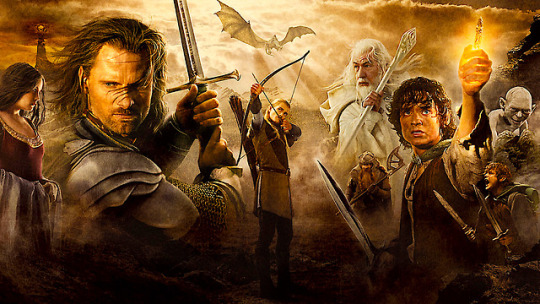
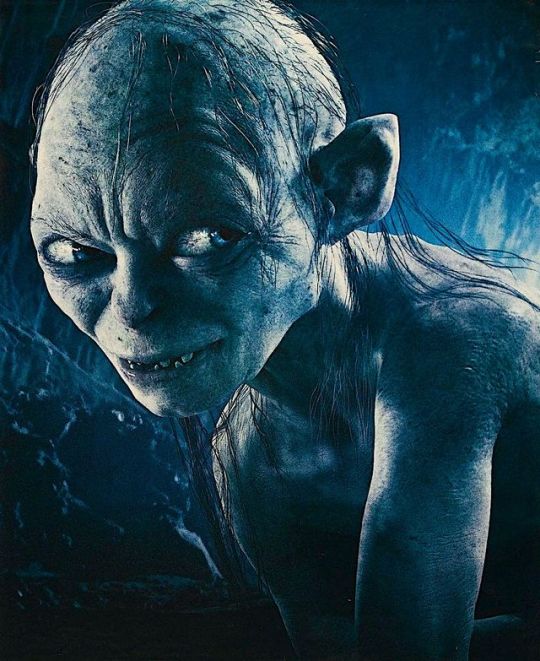

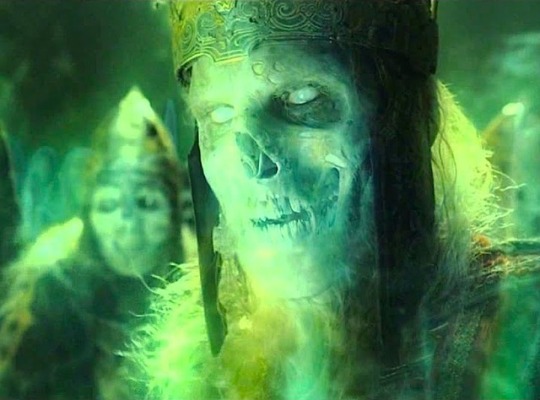
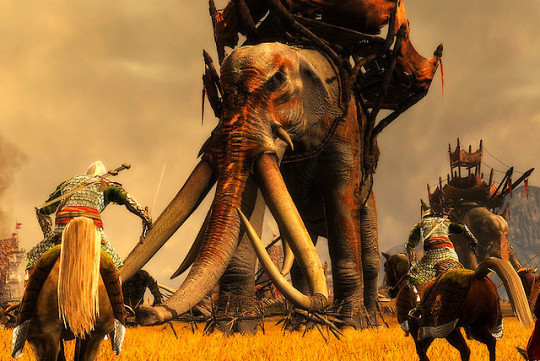
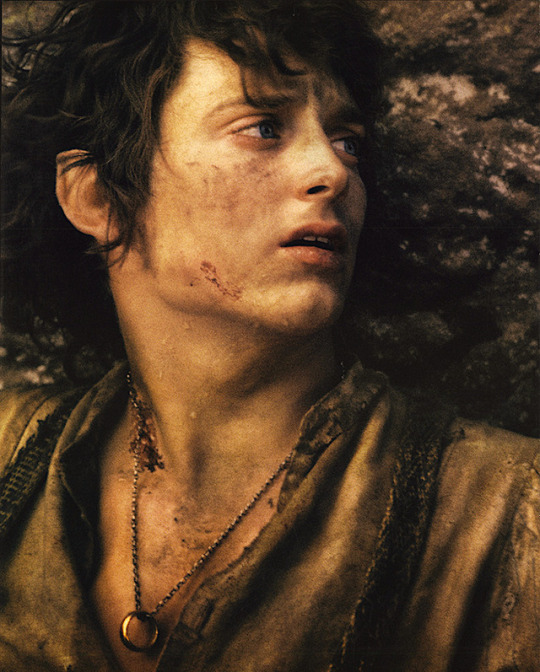
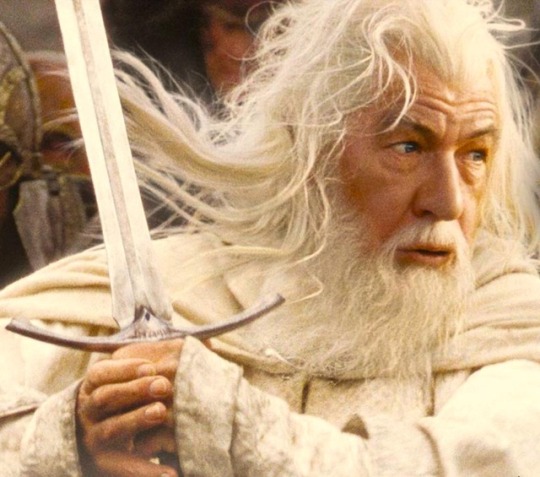
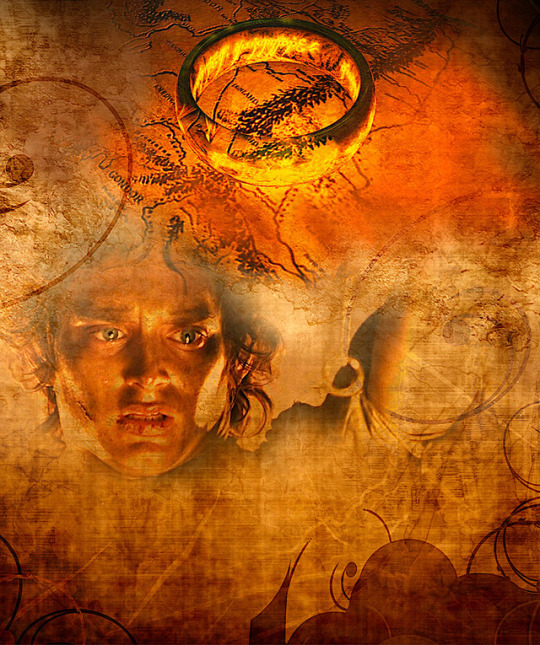
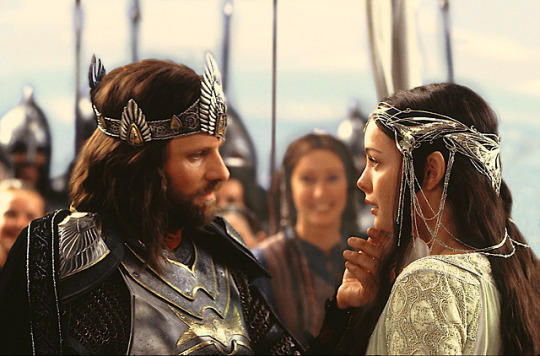
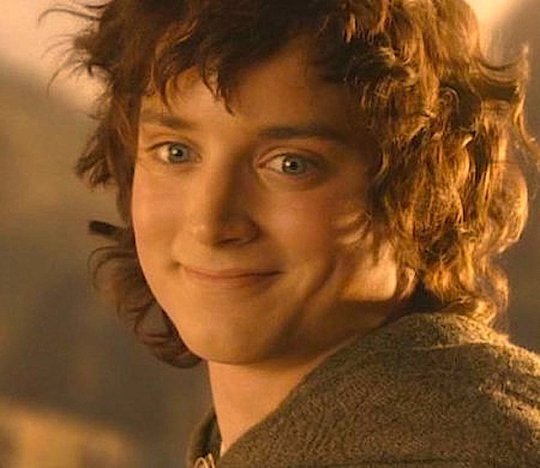
Images from The Return Of The King, courtesy of New Line Cinema
ARWEN’S CHOICE, GRIMA’S TEAR – part 3
Temptation & Forgiveness
The many Christian elements clearly present in Jackson’s Rings have been noted by some critics, including the power of sin, service to others, sharing, conversion, overcoming evil, pilgrimage, good will, salvation, vocation, love, compassion and redemption. One theme would be obvious even to a biblically illiterate viewer: susceptibility to temptation, as embodied by the One Ring’s effect on Bilbo, Smeagol, Deagol, Saruman, Boromir, Denethor and Faramir. This motif is presented at its most complex in the various stages of temptation Frodo goes through.
Forgiveness is especially apparent in several places: Frodo’s treatment of Gollum; Gimli’s change of heart regarding elves; Aragorn’s acceptance of Legolas’ apology; and Theoden’s kindness to the repentant Grima. The self-sacrifice, loyalty, servant nature and unconditional friendship of Samwise are a beacon throughout the film. Christ’s devotion to his mother Mary is echoed when Aragorn honors his own deceased mother’s statue (which is itself an obvious reference to Catholic veneration of the Virgin).
Providence
Divine providence rears its majestic head in several places. Gandalf tells Frodo: “Bilbo was meant to find the Ring; and you also were meant to have it. And that is an encouraging thought.” As Aragorn lies grievously wounded, Arwen’s spirit hovers over his body. Deep in Mordor, Sam looks up and sees a star through a break in Sauron’s poisonous cloud, and says: “There is light and beauty up there, Mr. Frodo, that no shadow can touch.” The White Tree finally blossoms, a none-too-subtle reference to the Tree of Life. Frodo and Sam are rescued by Gandalf and the eagles, as if by angels.
The filmmakers also add a surprisingly biblical twist to Theoden’s release from mental and spiritual subjugation: the king is literally exorcised, freeing him from being directly possessed by Saruman. Whether this was done because Jackson knew it was a very Catholic concept, or simply because it was a way cool cinematic device, is a matter of speculation.
Christ Figures
Just as Sauron, Saruman and the Witch King are clearly symbolic of Satan, and the Black Riders represent demons, the film also presents several obvious Christ figures: Gandalf, Aragorn and Frodo. Gandalf is explicitly called The White Rider – invoking the horseman of Revelation 19:11. As Gandalf the Grey, he falls at Khazad-dum, his arms spreading out to form a cross; he wrestles the Balrog of Morgoth (Satan) into the abyss (hell); he is later reborn as Gandalf the White, a more powerful Istari than he has ever been. In his new form, he is able to drive the fearsome Nazgul away with the white light issuing from his staff.
In the book, after the battle of Pelennor Fields, Aragorn demonstrates his gentler skills in the Houses of Healing. Tolkien writes: “The hands of the king are the hands of a healer – and so shall the rightful king be known.” While Jackson doesn’t overly emphasize this, he shows Eowyn being nursed by Aragorn – accompanied by a peaceful and lyrical song by Liv Tyler. Early in the film, Aragorn also uses his healing skills to help Frodo. There is also a very touching moment near the end, when Aragorn tells the hobbits: “You bow to no one.” He bows his knee to them, echoing an aspect of Christ: “He humbled himself.” His humility is also demonstrated by his earlier willingness to serve another king, Theoden, even though he is a monarch waiting to ascend to his own throne.
Mercy & Sacrifice
Frodo repeatedly shows mercy to Gollum, hoping to somehow help reverse the effect of the One Ring and start the pathetic creature on the road to regeneration. Frodo also embodies the punishment Christ endured when He was “wounded for our transgressions.” By the time the hobbit gets to Mount Doom, he is a devastated shadow of his Shire self.
The crucial moment, where he is stricken by the poison of evil, comes in act one – when he is wounded by the Witch King on Weathertop. Jackson reminds us of this moment several times, through flashbacks and other references. Toward the end, Frodo tells Sam: “It’s never really healed.” The price he pays in gaining the victory over Sauron’s evil, through his sacrifice, echoes the price paid by Jesus on the Cross.
Rebirth & Eternity
Resurrection is also very much evident throughout the film. Gandalf is literally raised from the dead. The injured Aragorn is restored by a mystical kiss from Arwen’s spirit; and the future king symbolically conquers death by walking the Paths of the Dead. At the Grey Havens, the last elves in Middle-Earth board a ship to the Undying Lands (also referred to by Tolkien as the Blessed Realm, the home of the Valar).
Frodo tastes death symbolically several times: getting stabbed by the morgul blade, whose poison could turn him into a wraith; succumbing to the Ring’s power on several occasions; falling into a swamp filled with demonic ghosts; and being struck down by Shelob’s sting. But all of these are overthrown by the Grey Havens scene, which represents his resurrection. “We set out to save the Shire,” he says, “and it has been saved – but not for me.” The only way out for him is to pass from Middle-Earth to the elves’ paradise across the sea. Thereby, “death is swallowed up in victory.”
The film only briefly alludes to the Undying Lands, with no detailed explanation of the term; but the concept of eternal life is touchingly enunciated by Gandalf, in a wonderful passage taken almost verbatim from the climax of the book (describing Frodo approaching the Undying Lands). As they sit barricaded in Minas Tirith, with enemy forces closing in, the wizard says to Pippin: “No, the journey doesn’t end here. Death is just another path, one that we all must take. The grey rain-curtain of this world rolls back, and all turns to silver glass. And then you see it … white shores – and beyond them a far green country, under a swift sunrise.”
Arwen’s Importance
Many critics and purists have complained about the increased role given to Arwen. Initially, the perception was that the filmmakers were simply tacking on a gratuitous romance to appeal to ‘the female demographic.’ But such talk died down when it became known that most of the Arwen scenes were taken directly from material in Appendix A of the book. Curiously, most Christian commentators don’t seem to have picked up on the Christian elements that virtually saturate the Aragorn/Arwen subplot.
In my view, this subplot was the most significant script decision taken by Jackson and company; indeed, it was a stroke of genius. By expanding Arwen’s role, based faithfully on the back story outlined in the Appendices, the scripters greatly increased the Christian content; they added a strong metaphorical element which was only implied in Tolkien’s actual narrative. It makes me wish Tolkien had woven the details into the narrative instead of relegating them to the appendix.
Arwen’s Grace
A summary of the Arwen/Aragorn story arc will help clarify my thesis. The first hint of the subplot occurs in act one, before Arwen appears in the film. Beside a campfire, Aragorn softly sings a song about the legendary elfmaiden Luthien, who gave her love to the human Beren, thus relinquishing her immortality. Frodo asks whom the song is referring to; Aragorn’s response subtly indicates he is thinking of his own immortal lover. Arwen is introduced soon after, and rescues Frodo from the Black Riders; as his wound overcomes him, she prays: “What grace is given me, let it pass to him; let him be spared.” In Rivendell, Arwen gives Aragorn encouragement, renews her vow to ‘bind herself’ to him, and bestows her Evenstar jewel upon him. He goes off on the quest, after a somber parting.
In act two, there is a flashback to Rivendell. The lovers share a tender moment; then Elrond exhorts Aragorn to give Arwen up, thereby allowing her to leave Middle-Earth and keep her immortality in the Undying Lands. Reluctantly, Aragorn breaks off the relationship; but she insists that he keep the Evenstar. Later, he is severely wounded in the warg attack. As he lies stricken, she materializes above him, conferring a blessing and a phantom kiss upon him. We hear her voice: “May the grace of the Valar protect you”; the Valar are the Ainur, the Holy Ones, the first creations of Tolkien’s Creator, Iluvatar – in other words, angels.
Arwen’s Destiny
The scene switches to Rivendell. Arwen refuses to leave Imladris with the other elves, determined to be reunited with her lover. Elrond then tells her what will become of her after Aragorn meets his inevitable mortal end; in a vision of her future, Arwen sees herself mourning the passing of her beloved, as her father paints a devastating picture of the black-clad widow wandering desolate, alone in a barren forest. Arwen capitulates, and leaves Rivendell with the other elves.
In act three, Arwen is heading through the forest with her elvish escort. She sees a vision of an older Aragorn embracing his young son, who is wearing her Evenstar jewel. She returns to Rivendell, and confronts Elrond about this alternate future; she chooses to stay in Middle-Earth, to bring her son into the world – and exhorts her father to reforge Narsil, the shattered blade that cut the Ring from Sauron’s hand 3,000 years before. Elrond sadly accepts her choice, comforts her and laments: “The life of the Eldar is leaving you.” Meanwhile, in his tent, Aragorn has a dream of the Evenstar being shattered.
Elrond gives Aragorn a gift: Anduril, the reforged Sword of the King. He also gives him the sad tidings that Arwen is dying – her destiny now mysteriously tied to the fate of the One Ring. Aragorn later uses a palantir to confront Sauron – who shows him a vision of his dying lover; the Evenstar shatters, this time for real. Aragorn takes up Anduril, and goes to confront Sauron’s army at the Black Gate; the Ring, and Sauron, are destroyed. At Aragorn’s coronation, he is reunited with his lover. The reunion, while joyous, is rendered even more poignant by the bittersweet implications of Arwen’s new mortal status.
Love & Hope
In total, Arwen is onscreen a fairly small amount of time; but it feels much more substantial. Her appearances are paced just right, and her importance to Aragorn resonates throughout the film. Their story is heavily imbued with Christian meaning, as web critic Abercius has eloquently pointed out at CatholicQandA.com. Aragorn is willing to sacrifice Arwen’s companionship to save her from a life of war and despair – loving her “as Christ loved the church, and gave Himself up for her.” Yet, he never totally gives up on his love for her, continuing to wear the Evenstar.
Indeed, he is the very embodiment of Christian hope, in Tolkien’s view; the author names him Elessar, which means ‘the Renewer’, and Estel, meaning ‘hope’. While the film doesn’t clarify these ideas, Aragorn still embodies them. At Helm’s Deep, facing overwhelming odds, he tells a boy soldier: “There is always hope”; when all seems lost, he motivates Theoden to ride out and meet the enemy regardless; and his short rallying speech to the troops at the Black Gate is truly inspiring.
Ultimate Sacrifice
In her own way, Arwen is also a true Christ figure. She, too, humbles herself; and she also makes the ultimate sacrifice. She is free to go to the Undying Lands, but chooses not to – partly motivated by the vision of the child she could only have if she stays with Aragorn. She sacrifices her immortality to bring the child into existence. While her motivation is a combination of romantic love, and love for the child, the fact is that she lays her life down to save another’s life. What could be more quintessentially Christ-like?
In some respects, Arwen is the purest element in the entire film, an embodiment of nobility, grace, loyalty and love. Her story adds extraordinary emotional and spiritual power to the film. By increasing her role, Jackson and his co-scripters actually improved on Tolkien in a profound way – and that is no mean feat.
For Fanatics Only?
Finally, here’s where we separate the elves from the dwarves. At the risk of being dismissed as a hopeless fanatic, I have to say that The Lord Of The Rings is best appreciated when it is watched in an all-day marathon; the story has greater immediacy, momentum and accumulative emotional impact. Some key elements resonate more intensely throughout the saga. Indeed, watching the complete film in one sitting (with breaks for second breakfast and afternoon tea, of course!) greatly enhances one’s appreciation of some of the most important elements of this sprawling narrative.
These include: the evolution of the relationship between Frodo and Sam; Smeagol’s struggle against his alter-ego, Gollum, and his ultimate capitulation to evil; the growth of Merry and Pippin, from juvenile clowns to seasoned warriors; the dire significance of Frodo’s wound; the relationships between Denethor and his sons; Aragorn’s progress from uncertain exile to confident monarch; the weight of Arwen’s acceptance of mortality; Theoden’s evolution from slave of Saruman to courageous champion; Gandalf’s progression from lovable Grey bungler to imperious White commander; Frodo’s view of Smeagol, going from hatred to pity to mercy; the importance of the Shire as the hobbits’ idyllic refuge from the world; Eowyn’s progression from sheltered royal to shieldmaiden; and Frodo’s evolution from carefree and complacent hobbit to haunted, battle-scarred outsider.
The shorter version is probably best for a day-long marathon, of course, simply because of the daunting length of the extended edition; but the latter is well worth devoting a day to, for the maximum experience. For the less venturesome, the film can also be split very nicely into two parts and viewed on consecutive days. In my opinion, it’s best to end part one after Saruman sends his army of Uruk-hai off to Helm’s Deep; and to begin part two with Merry and Pippin seeing Saruman’s army in the distance. A Galadriel monologue soon after that scene effectively encapsulates the key points of the story’s first half.
Missed Opportunity
After all is said and done, there’s only one thing Jackson could do to improve upon his work: release the full extended film worldwide as a big-screen special event – preferably in Imax theatres. The extended editions of Fellowship and Towers were given a brief theatrical run in 2003; but as far as I know, aside from a few limited presentations, the extended finale has never been widely shown to the public on the big screen internationally. Surely, this is a missed opportunity.
Now that he has gotten his King Kong remake, The Lovely Bones and The Adventures of Tintin out of his system, and especially since The Hobbit has finally become a reality, I hope Jackson may consider doing a big-screen edition of the complete Rings saga (maybe even a 3D version, if it is done properly). New Line Cinema would be wise to do it now that the complete Hobbit trilogy has run its course; indeed, I would love to see a special presentation of both trilogies in the theatres.
Supreme Masterpiece
Speaking of The Hobbit, much has been written about the supposed failure of Jackson to remain faithful to the book. I have to disagree with that assessment, and have done so at great length in my review (see link below). Personally, I think the Hobbit series is surpassed only by the Rings Trilogy, as a supreme work of fantasy. I can't think of any production unit that could have done a better job than Peter Jackson and his colleagues, and I am greatly looking forward to further flights of fancy from those quarters. It's fun to ponder how the Kiwi Wizard could possibly top himself.
We might dare hope that he and his team could someday tackle The Silmarillion. It is a rather unwieldy book, but a great film could be made by focusing on the creation myth of Iluvatar and the Ainur; the theft of the Silmarils; the villainy of Sauron’s mentor, Morgoth; the tragedy of Beren and Luthien; the cataclysmic destruction of Numenor; and Sauron’s defeat in the War of the Last Alliance. Tolkien’s Children Of Hurin would also make a fine film – albeit a rather gloomy one, but powerful nonetheless. However, considering the intransigence of the Tolkien Estate, it is highly unlikely Jackson would ever get the movie rights.
In conclusion: It is indeed no exaggeration to call The Lord Of The Rings a supreme masterpiece. While it has a few miniscule flaws, it is nevertheless one of the very greatest accomplishments in the history of film. It is highly doubtful that it could ever be surpassed as a spectacle. In my mind, the only thing that could conceivably trump it would be a faithful adaptation of the Book Of Revelation – done with the same state-of-the-art technology, craftsmanship and imagination, by someone with money willing to invest it. Is George Lucas listening? Just kidding! How about Spielberg?
For an archive of outstanding Rings-related videos, click here for the APPENDICES:
http://musemash.tumblr.com/post/181194210475/the-rings-trilogy-multi-facet-appendices-in
VINDICATING A SPLENDID HOBBIT'S TALE
https://www.facebook.com/fugue999/photos/a.337095876312460/1040775709277803/
1 note
·
View note